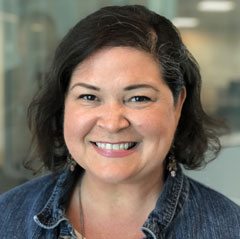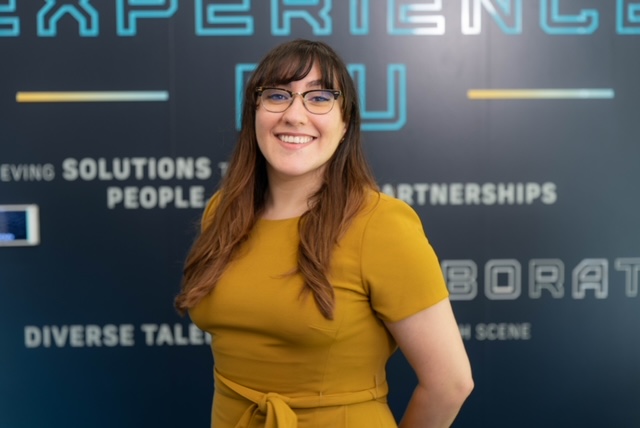Nicole Regalado, Bachelor of Arts in Latin American and Caribbean Studies, 2021

Mar 22, 2023, 11:00 AM.
An FIU graduate uses her bachelor’s degree to help organize events for FIU in Washington, D.C., while she pursues an online master's degree.

Nicole Regalado grew up in Miami and is a first-generation college student. As a Hispanic, she had a natural passion for Latin America, but it grew when she studied abroad in Brazil for six weeks through her first FLAS fellowship. Once she returned, she picked up a second major.
After graduating with a public administration degree, she was awarded the Foreign Language and Areas Studies Fellowship to continue her Portuguese/Latin American and Caribbean studies. Because of the pandemic, and having more time on her hands, she re-enrolled to pursue a 100% online B.A. in Latin American and Caribbean Studies. Regalado graduated in 2021 with her second FIU degree. Today, she works as a community and program manager at FIU Washington, D.C., where she enjoys engaging with dignitaries and Washington officials. At the same time, Regalado is pursuing her Master of Arts in Latin American and Caribbean Studies.
In this Q&A, she shares her experience studying Latin America, and why she recommends the B.A. in Latin American and Caribbean Studies to others.
What do you do?
My job is to engage and conduct outreach to FIU's internal and external partners, and the D.C. community (stakeholders such as NGOs, agencies, Capitol Hill staffers, and think tanks). I then introduce them to FIU through events and programming that highlight our different advocacy themes.
What was your favorite class and why?
The Youth Violence in Latin America, focusing on Colombia. It was one of my favorite classes because it puts things into perspective as a daughter of a Colombian but never personally lived in the region. Dr. Vorobyeva offers a wide range of articles and information that gives you a wider perspective than what is in a single textbook. There are many topics that are interesting in Latin America, such as politics, climate resiliency, trafficking, and migration/immigration, etc. I learned how they all were intertwined and how youths are affected by these occurrences.
What immediately applicable skills did you learn?
With my bachelor's, I gained a global and local understanding of what is happening in the region. I quickly understood the nuances of the political arena and why issues are pressing now. My overall understanding provided a foundation of knowledge to work from in my everyday interactions and work.
How does your degree help you in your work or how do you see it helping you in the future?
My degree helps me identify different perspectives, backgrounds within the region, and sensitive issues due to their history with the United States. With this understanding, I can engage agencies, think tanks, corporate partners, NGOs, and political representatives who are advocates for FIU Latin America's research and goals. For example, I spearheaded our newly launched advocacy series, Americas Roundtable, using my background and understanding of Latin America to curate appropriate questions for the panel and select speakers from credible organizations.
Why did you decide to study this area and choose this program?
It started with a desire to be trilingual and began with my Portuguese studies at FIU. Once I started learning more about Brazil, it opened the door to start learning more about Latin America. I began to learn and appreciate each country's differences that I used to overlook. For example, due to their common language and culture, I thought there wouldn't be such drastic changes in their history, politics, and future outlook, but I was incorrect, and I'm thankful to have learned that. Latin America is in a geographically important position for the United States, and it's important to understand what happened and what is happening so close to our home. My attention to Brazil just grew, and upon completing a study abroad program, I decided to study the entire region. When it came time to pick my master’s degree, I was told to pick something that I enjoyed learning, and I instantly thought of Latin America.
What is one thing you learned that you didn’t expect?
I felt like I already knew about Latin America, Colombia, and Cuba because of my family, but there was so much I didn’t know. I quickly learned that my family's stories are valid, but there is more to those stories, and this area of study opened conversations with them and helped me better understand the region and my own Latin American heritage with history, research and critical thinking.
Would you recommend this program to other students?
Yes. It's important for everyone to understand Latin America's history and current state as it affects us so closely in the United States.
